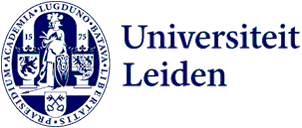
‘Training the pharmacists of tomorrow is something we do together’
Martijn Manson became programme director for the Master’s in Pharmacy this month. He is a pharmacist as well as a lecturer and researcher at the LACDR (Leiden Academic Centre for Drug Research). ‘LUMC and LACDR share the responsibility for training the pharmacists of the future.’
What does this appointment mean for you?
‘I became involved in the master’s in Pharmacy through the LACDR in 2017, when the programme was still in its early stages. Our very first students had only just started the second year of the three-year course. It’s remarkable to see where our students end up now, and how the programme has grown into a fully fledged pharmacy degree. For me, it’s above all an honour to help shape the programme further in this new role, together with my colleagues at the LACDR and LUMC.’
How does the collaboration between LACDR and LUMC work?
‘The programme is run by a dedicated team of pharmacist-lecturers from the department of Clinical Pharmacy and Toxicology at LUMC and from the LACDR. Together they are responsible for roughly two-thirds and one-third of the teaching within the master’s programme. For specific topics, we regularly bring in experts from both LUMC and LACDR. Because the programme is embedded within the LUMC, our students are taught by doctors and pharmacists who work directly in clinical practice.
LACDR, on the other hand, plays a key role in developing students’ research skills and their critical mindset. We also often have early insight into new developments in the pharmaceutical field, which can then be incorporated into the curriculum. Finally, through the bachelor’s in Bio-Pharmaceutical Sciences (BFW), the LACDR is largely responsible for preparing students for the master’s programme, as around 80% of our students come from BFW. In short, I see the pharmacy programme as a joint project of the LUMC and LACDR, where we share responsibility for educating the pharmacists of the future.’
What are your ambitions for the coming period?
‘One priority is to create even more synergy between the academic programme and the experiences students gain during their clinical placements. A new national framework for pharmacy degrees is currently being developed, so we will also need to critically review our own curriculum in the near future.’
What does this appointment mean for your research? Is it possible to combine the two?
‘Balancing research and teaching can be challenging in terms of time, but in my view it also creates synergy. In recent years, my role as coordinator of the research projects has actually given me a broader perspective on pharmacy research through the students’ work, and that has helped my own research as well. I’m also enjoying collaborating closely with colleagues at the LUMC. Research is very important to me, so I will make sure it remains part of what I do.’
